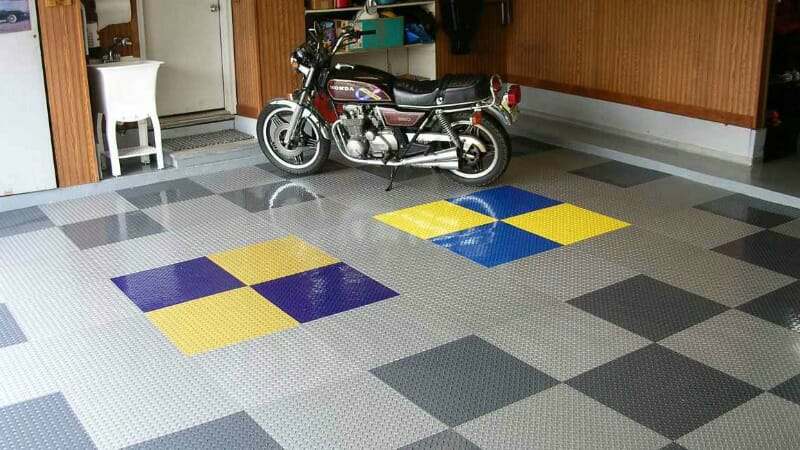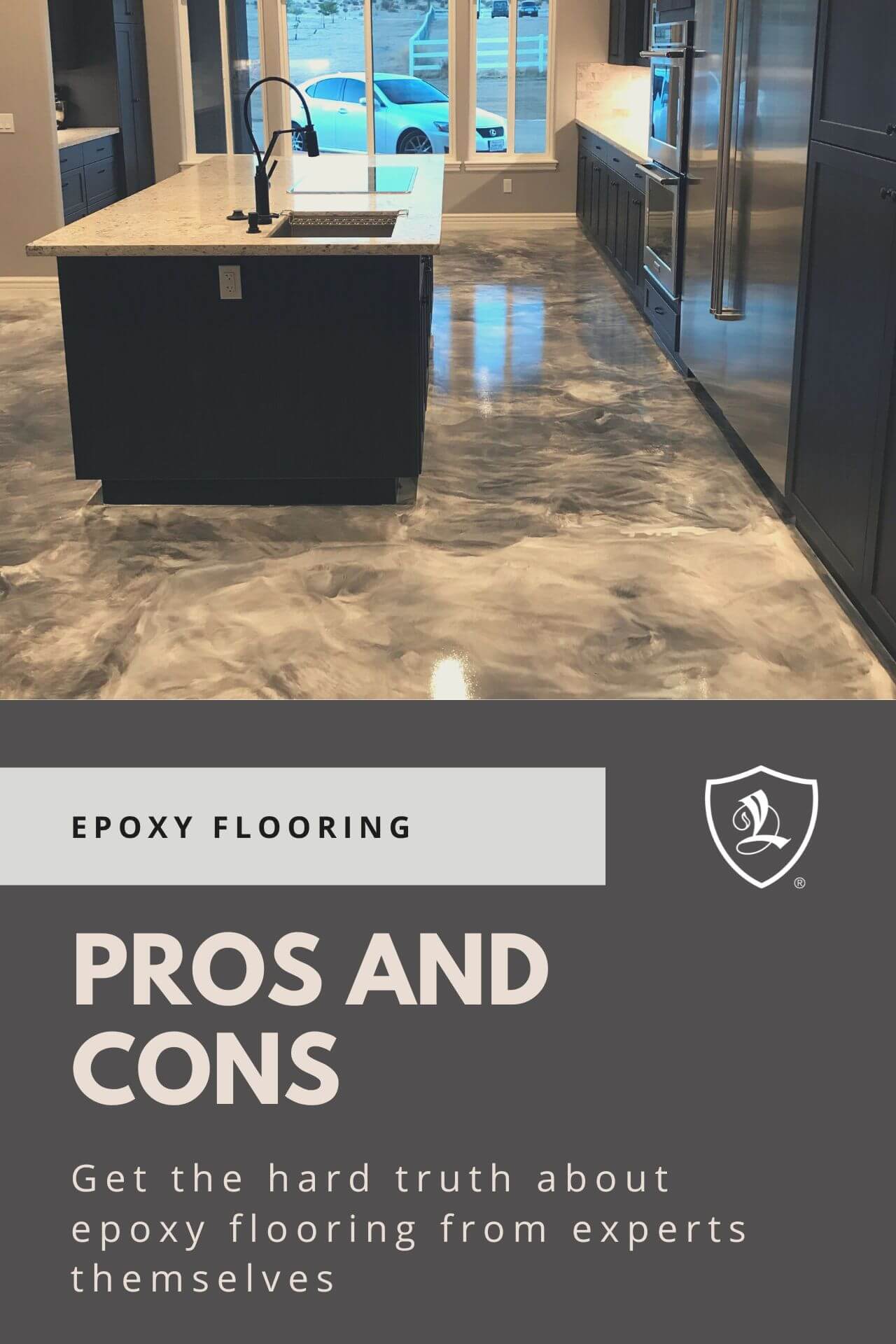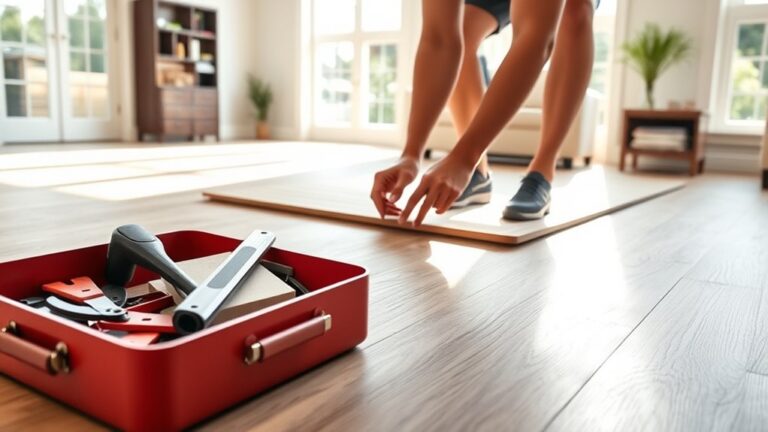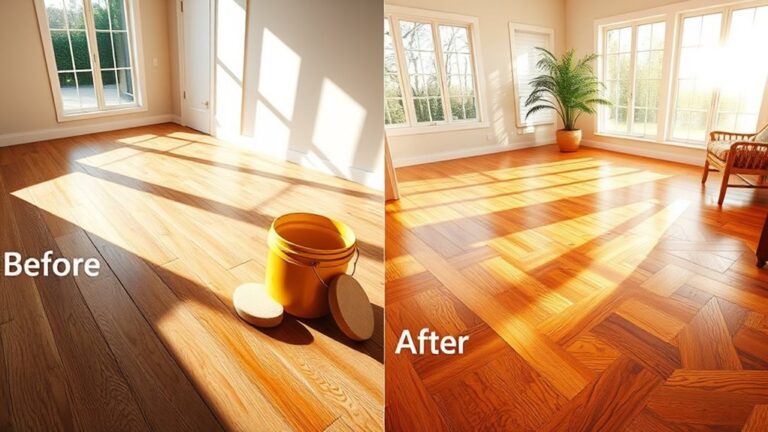Yes, epoxy floors are waterproof. They provide a protective, seamless layer that prevents water from seeping through and damaging the underlying material.
Epoxy flooring is a popular choice for areas prone to moisture, such as basements, bathrooms, and garages. Its waterproof nature not only helps to prevent water damage, but also makes it easy to clean and maintain. Epoxy floors are highly durable and resistant to stains, chemicals, and wear, making them a long-lasting solution for both residential and commercial spaces.
With their waterproof properties, epoxy floors offer a reliable and practical flooring option for areas where water exposure is a concern.
The Basics Of Epoxy Floors
The Basics of Epoxy Floors:
What are epoxy floors?
Epoxy floors are a type of surface coating made from epoxy resin and a hardening agent. They are commonly used in industrial and commercial settings due to their durability and resistance to chemicals, stains, and water. The epoxy coating is applied to the existing concrete or cement surface, creating a seamless and glossy finish.
How are epoxy floors installed?
The installation process of epoxy floors typically involves several steps. First, the surface needs to be properly cleaned and prepared to ensure good adhesion. Any cracks or imperfections are filled and repaired. Next, a primer is applied to enhance the bond between the concrete and the epoxy coating. Once the primer is dry, the epoxy resin is mixed with the hardener and applied to the floor using a roller or a squeegee. The epoxy is then left to cure for a specific period of time, usually around 24-48 hours.
Advantages of epoxy floors
Epoxy floors offer several benefits that make them a popular choice in various applications. Firstly, they provide a durable and long-lasting surface that can withstand heavy foot and vehicle traffic. They are also resistant to chemicals, oil, and other stains, making them easy to clean and maintain. Furthermore, epoxy floors can be customized in terms of color, texture, and patterns, allowing for creative design options. Lastly, they are highly resistant to moisture, making them suitable for use in areas prone to water exposure.
Understanding Waterproofing In Flooring
The term “waterproof” is often associated with flooring, but what does it really mean for a floor to be waterproof? Waterproof flooring refers to materials that can withstand exposure to water without getting damaged. These floors are designed to prevent water from seeping through and causing structural issues.
| Types | Description |
|---|---|
| Epoxy Floors | Epoxy floors are a type of seamless, durable, and water-resistant flooring option. They create a protective barrier against moisture, making them highly suitable for areas prone to spills or water exposure. |
| Tile Floors | Ceramic, porcelain, or stone tile floors are known for their water resistance. Properly installed and grouted, they can offer waterproofing benefits in areas like bathrooms or kitchens. |
| Vinyl Floors | Vinyl flooring materials are naturally resistant to water penetration. They are often installed in areas with high moisture levels, providing excellent protection against water damage. |
- Waterproof vs. water-resistant: It is important to note that not all waterproof flooring is created equal. Some materials may be labeled as water-resistant, meaning they can withstand water to a certain extent but are not entirely immune to it.
- Installation is key: While the flooring material itself may be waterproof, incorrect installation can compromise its effectiveness. It is crucial to follow proper installation procedures to maximize the floor’s waterproof properties.
- Waterproof does not mean foolproof: While waterproof flooring provides protection against water damage, it does not guarantee complete invulnerability. Standing water, excessive moisture, or prolonged exposure can still cause issues if not addressed promptly.
Evaluating The Waterproof Properties Of Epoxy Floors
Epoxy floors are known for their excellent waterproof properties, making them a popular choice for a variety of spaces. When evaluating the waterproofing ability of epoxy floors, it is important to consider how they compare to other options. Epoxy flooring outperforms many alternatives, such as tiles and hardwood, in terms of water resistance.
There are several factors that affect the waterproofing ability of epoxy floors. The quality of the epoxy resin used, the thickness of the coating, and the proper preparation and installation of the floor all play a crucial role in its water resistance. Additionally, the condition of the underlying concrete substrate can impact the waterproof properties of the epoxy floor.
Testing methods are available to determine the water resistance of epoxy floors. These methods typically involve exposing the floor to water or moisture for a specified period of time and noting any signs of water penetration or damage. It is important to select an epoxy floor coating that has been rigorously tested and proven to provide reliable waterproofing.
Real-life Applications Of Epoxy Floors And Water Exposure
Epoxy floors are known for their exceptional waterproofing capabilities, making them a popular choice not only in residential settings but also in commercial and industrial environments. In homes, epoxy floors are commonly used in basements, garages, and laundry rooms, where water exposure is common. The seamless and non-porous nature of epoxy flooring prevents water from seeping through, protecting the underlying concrete and preventing issues such as mold and mildew growth.
In commercial and industrial settings, epoxy floors are often installed in spaces that require resistance against water and other liquids, such as warehouses, manufacturing facilities, and food processing plants. These floors are designed to withstand heavy foot and vehicle traffic while maintaining their waterproof properties.
Various case studies have highlighted the effectiveness of epoxy floors in waterproofing applications. From hotel bathrooms and restaurant kitchens to car wash bays and veterinary clinics, epoxy floors have proven to be highly durable and resistant to water damage. In these real-life scenarios, epoxy floors have demonstrated their ability to withstand constant exposure to water, cleaning chemicals, and other liquids without compromising their performance.
Maintenance And Care For Waterproof Epoxy Floors
Proper cleaning methods are essential for ensuring the longevity and water resistance of epoxy floors. Regularly sweeping or vacuuming the surface will help remove dirt and debris. To clean stains, use a mild detergent mixed with water. Avoid using abrasive cleaners or scrub brushes as they can damage the epoxy coating. Wipe up spills immediately to prevent water from seeping into the floor.
Preventing water damage on epoxy floors is crucial. Place mats or rugs in areas prone to water exposure, such as entryways or kitchens, to absorb excess moisture. Use floor protectors under furniture feet to prevent scratches and water accumulation. Avoid dragging heavy objects across the floor, as this can cause scratches and compromise the waterproofing.
Despite their durability, waterproof epoxy floors may encounter common issues. If you notice any bubbling or lifting of the coating, address it promptly. Clean the affected area, remove any loose material, and reapply epoxy as necessary. Regularly inspect the floor for cracks or damage and repair them immediately to maintain its waterproof properties.
 Epoxy Floors Waterproof? Discover the Truth”/>
Epoxy Floors Waterproof? Discover the Truth”/>Addressing Concerns And Limitations
Epoxy floors are commonly used due to their durability and aesthetic appeal, but a common concern is whether they are waterproof. While epoxy floors are generally resistant to water damage, they may not be completely waterproof in all situations.
Extreme water exposure can pose a challenge for epoxy floors. Prolonged submersion or exposure to standing water can cause the epoxy coating to degrade over time. It is important to note that epoxy floors are not recommended for applications where constant water exposure is expected, such as swimming pools or areas prone to flooding.
There are limitations to consider when using epoxy floors in wet areas. These floors may not be suitable for environments with high humidity or where frequent and heavy water spills are common. Additionally, areas with potential cracks or gaps in the substrate can allow water to seep through and potentially cause damage to the epoxy coating.
However, there are ways to overcome potential waterproofing challenges with epoxy floors. Proper surface preparation, including ensuring a smooth and solid substrate, can minimize the risk of water infiltration. Applying multiple coats of epoxy and using a topcoat with enhanced water resistance can also help improve the waterproofing capabilities of the floor.
In conclusion, while epoxy floors offer resistance to water damage, they may not be completely waterproof in all situations. It is essential to assess the specific needs of the environment and consider the limitations and potential challenges before using epoxy floors in wet areas.
Frequently Asked Questions On Are Epoxy Floors Waterproof
Are Epoxy Floors Waterproof?
Yes, epoxy floors are highly waterproof. The epoxy coating creates a seamless and impermeable surface that prevents water and other liquids from seeping through. This makes epoxy floors an excellent choice for areas prone to moisture, such as basements, garages, and commercial kitchens.
Can Epoxy Floors Be Installed In Bathrooms?
Yes, epoxy floors can be installed in bathrooms. The waterproof and durable nature of epoxy coatings make them suitable for high-moisture areas like bathrooms. Epoxy floors are not only water-resistant but also resistant to stains, chemicals, and mold, making them an ideal choice for bathroom flooring.
How Long Does An Epoxy Floor Last?
An epoxy floor can last for many years if properly maintained. With regular cleaning and proper care, epoxy floors can last up to 20 years or more. However, the lifespan of an epoxy floor may vary depending on factors such as foot traffic, usage, and maintenance practices.
Are Epoxy Floors Slippery?
Epoxy floors can be slippery when wet, especially if a high-gloss finish is applied. However, there are ways to enhance the slip resistance of epoxy floors. Adding anti-slip aggregates or textures to the epoxy coating can greatly improve traction and reduce the risk of slips and falls.
Conclusion
To sum up, epoxy floors offer impressive water resistance, making them a viable choice for areas prone to moisture and spills. Their durable and seamless surface creates a barrier that effectively repels water, preventing it from seeping through and causing damage.
With their easy maintenance and long-lasting properties, epoxy floors are a practical solution for both residential and commercial spaces. Whether it’s a garage, basement, or commercial kitchen, you can trust epoxy floors to keep your floors waterproof and protected.




